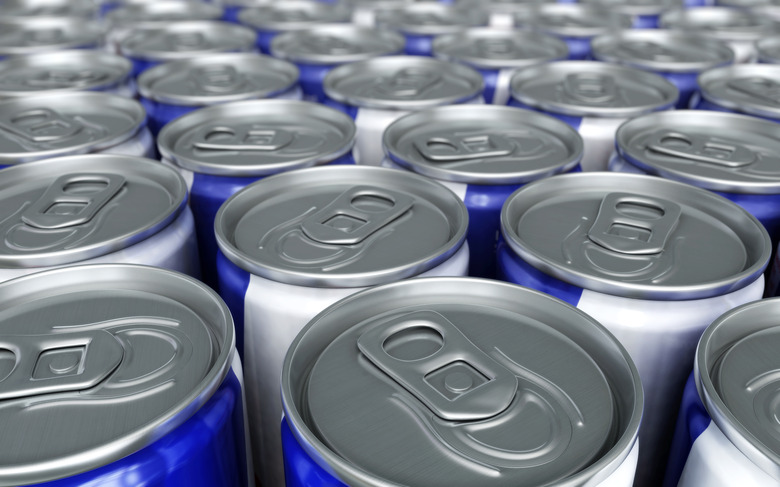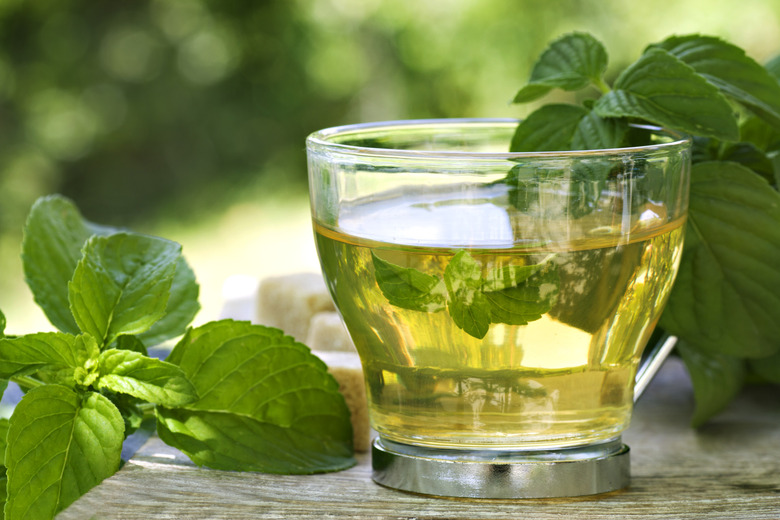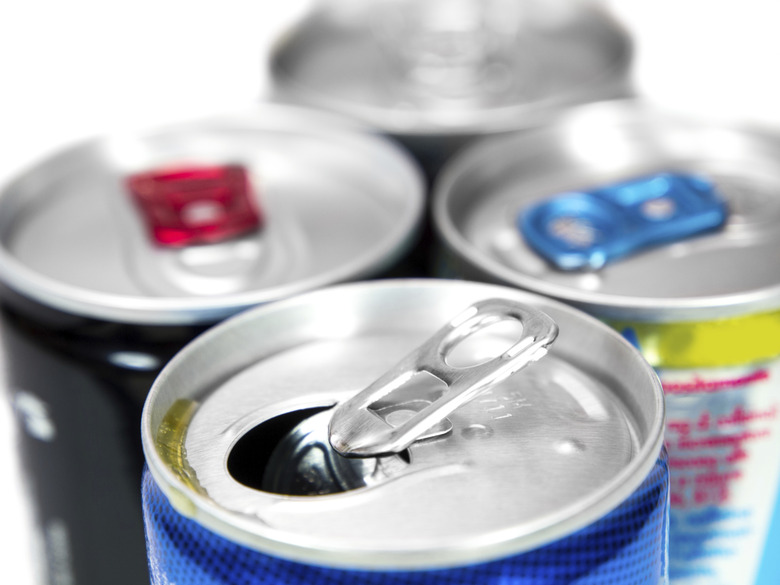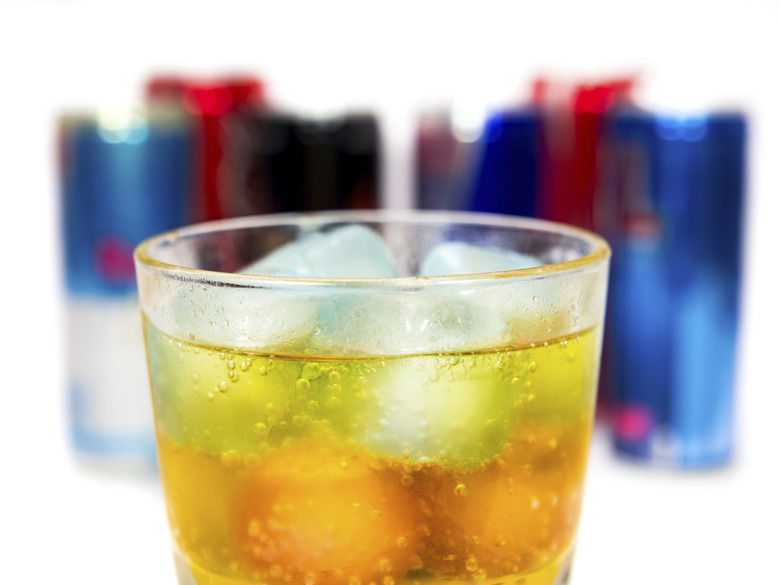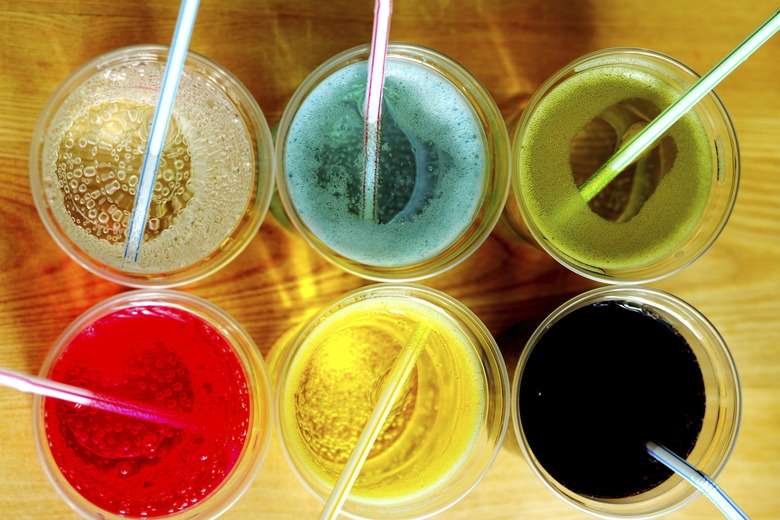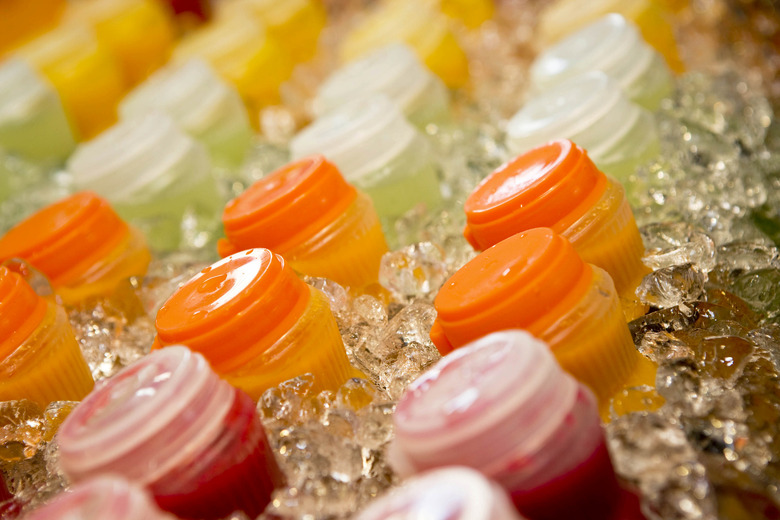Energy Drink Science Project
The belief concerning energy drinks is that they will, of course, give you energy. But do they really? Some people believe that they do and some believe they don't. The questions are, do they really provide energy and if so, how long does this effect last? These are questions that can be answered by the completion of a science project or two.
History
History
Throughout history people have consumed beverages that are purported to provide energy. Two common examples are coffee and tea In Newcastle, England in 1927, a drink called Lucozade was one of the first modern-like energy drinks that came about as a supplementary liquid for patients in hospitals. More recent energy drinks emerged, overseas, in 1960. It wasn't until 1980 that the first energy drink, Jolt Cola, appeared in the U.S. and, 17 years later, in 1997 Red bull entered the U.S. market.
Types
Types
Modern energy drinks include but are not limited to Red Bull, Full Throttle, Snapple Green Tea, AMP Energy Mountain Dew and SoBe Essential Energy. Certain energy drinks have caffeine while others may also contain extra vitamins, minerals, and herbal supplements. These drinks are often carbonated, contain large amounts of caffeine, and generally are high in sugar.
Importance
Importance
Students testing the effectiveness of energy drinks learn several things. One is they learn to follow the scientific method. In science, as in many other areas of life, it is important to develop a step-by-step method for answering questions and solving problems. This helps people focus on the problem at hand while eliminating the influence of opinion.
Secondly, science projects on energy drinks help students determine the difference between fact and advertising gimmicks. Advertisers are well known for using flashy images to catch the attention of a viewer and to imply benefits that may not exist. Scientifically proving or disproving these potential benefits helps students make educated decisions when searching for a product in addition to helping them separate fact from fiction.
Science Project
Science Project
In this science project you will test whether energy drinks provide more energy than the equivalent amount of water. First develop an energy rating survey. Choose a scale from 1 to 5 with 1 being the lowest level of energy and 5 the highest. Next, choose 10 of your classmates to participate in your project; explain the procedure and your rating scale In the beginning, before drinking anything, ask them to rate their current energy levels. Next, direct five students to drink 8 oz. of water and five students to drink 8 oz. of the chosen energy drink. After 10 minutes of rest, ask them to rate their energy levels again.
Once you have established their baseline energy levels, direct the students to complete five minutes of a prescribed activity such as walking, skipping, or running. Whichever you choose, make sure they are all participating in the same activity. At the end of five minutes, ask them to again rate their energy level. Repeat this procedure three more times for a total of twenty minutes of activity.
If you have the human resources, repeat this project every day, at the same time, for five days. There is a good chance your PE/health teacher will agree to "loaning" you the students you need. He may even be willing to act as your assistant, helping you as needed.
Record your data in a table and average out your values. Graph the data on a line graph or a bar graph with time values on the x axis and average energy level ratings on the y axis. Analyze your data and write down your conclusions.
Alternate Project
Alternate Project
An option for determining the long-term effects of energy drinks compared with non-energy drinks would be to first choose a class to participate in your activity. Explain your purpose and the procedures you will follow. Direct every student to rate their energy levels before drinking anything. Choose half the class to drink a serving of energy drink and the other a serving of water. Ask them to rate their energy level every 10 minutes until lunch time. Make sure you have their teachers' permission and that you supply the liquids and the worksheets with rating scales and times included. Again, record your data in a table, determine the averages and create a graph. Analyze your data and form a conclusion about the long-term effects of energy drinks.
Considerations
Considerations
Due to the placebo effect you may want to choose a flavored, non-energy drink in lieu of water.
Cite This Article
MLA
Bollin, Penny. "Energy Drink Science Project" sciencing.com, https://www.sciencing.com/energy-drink-science-project-6513781/. 24 April 2017.
APA
Bollin, Penny. (2017, April 24). Energy Drink Science Project. sciencing.com. Retrieved from https://www.sciencing.com/energy-drink-science-project-6513781/
Chicago
Bollin, Penny. Energy Drink Science Project last modified August 30, 2022. https://www.sciencing.com/energy-drink-science-project-6513781/
